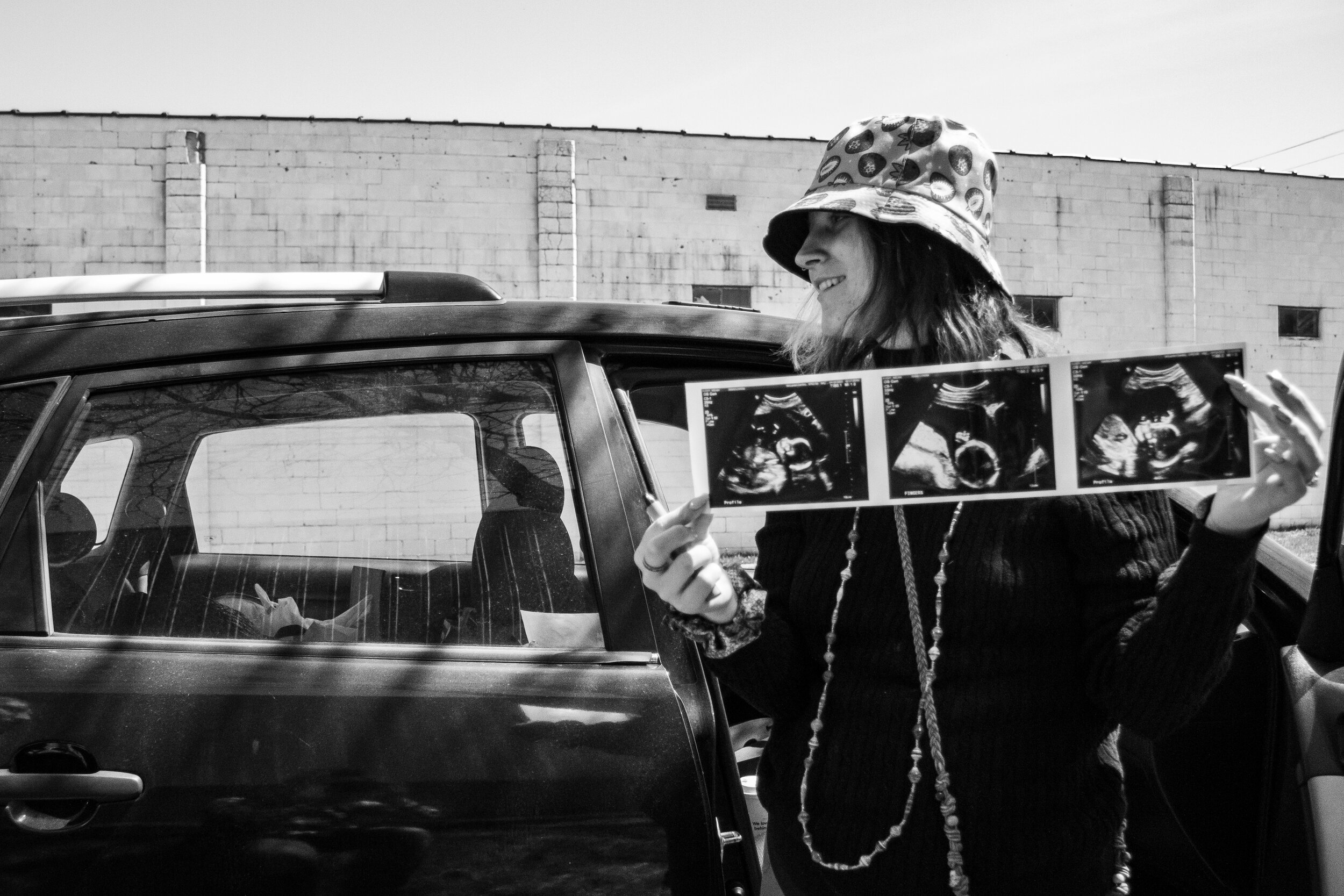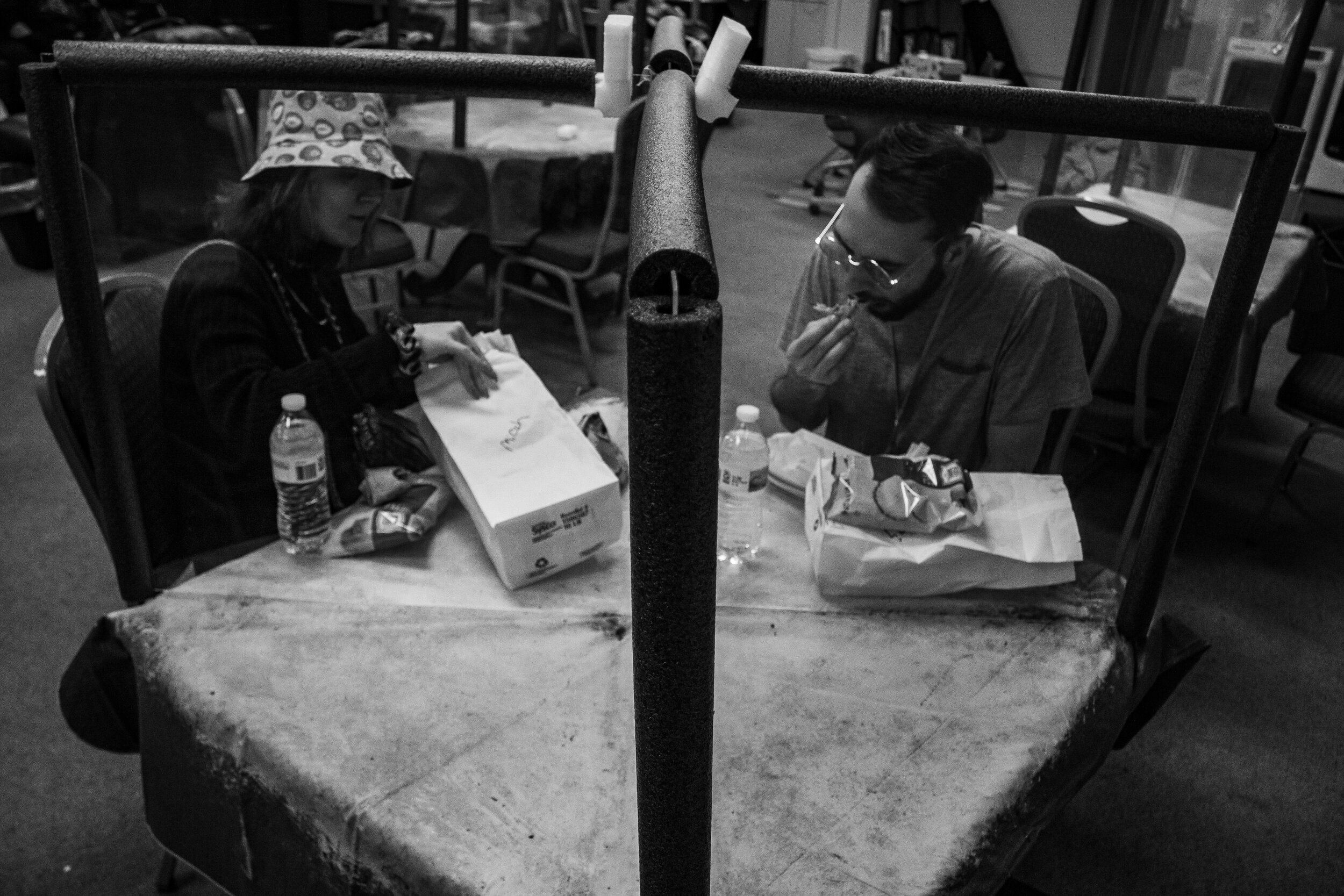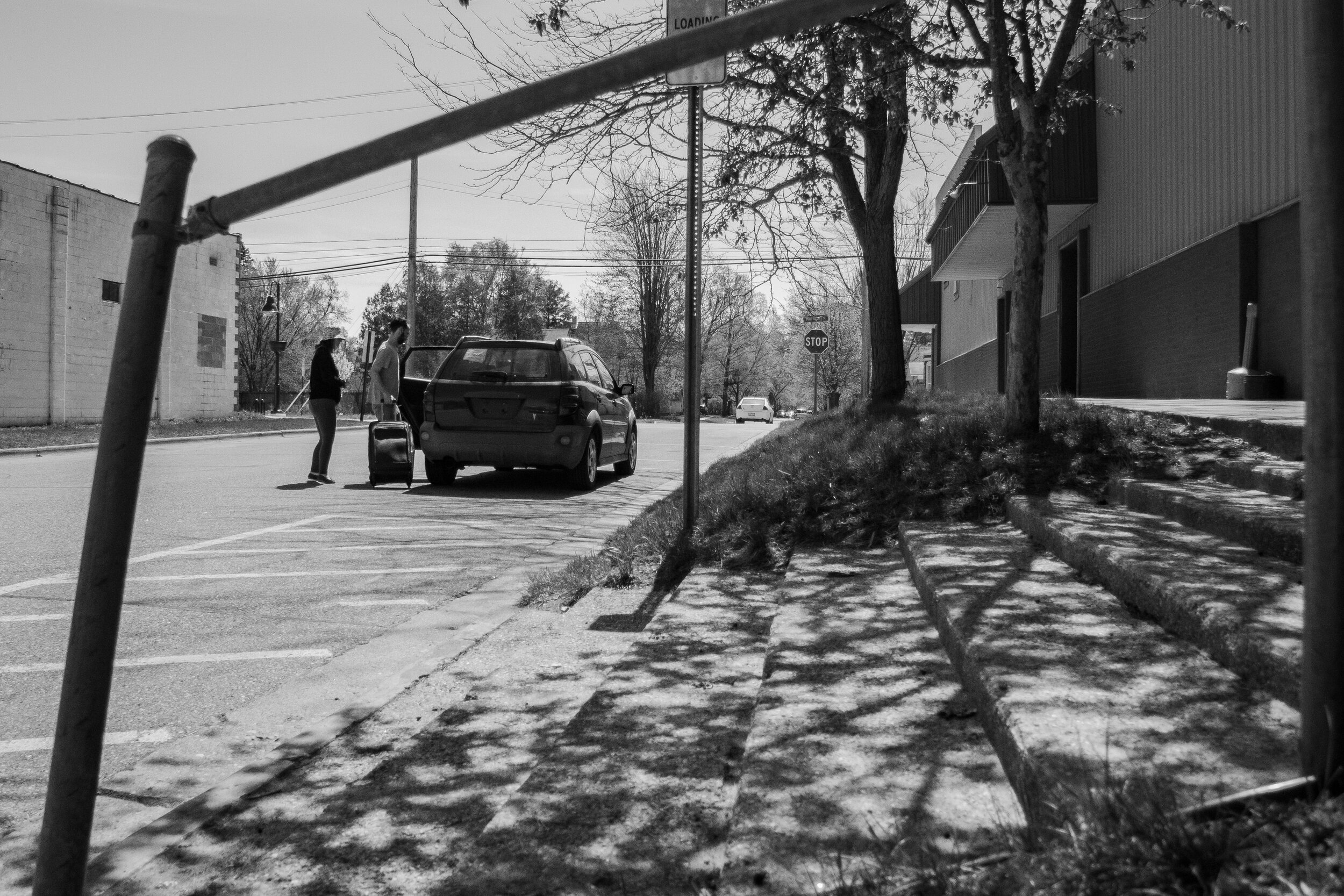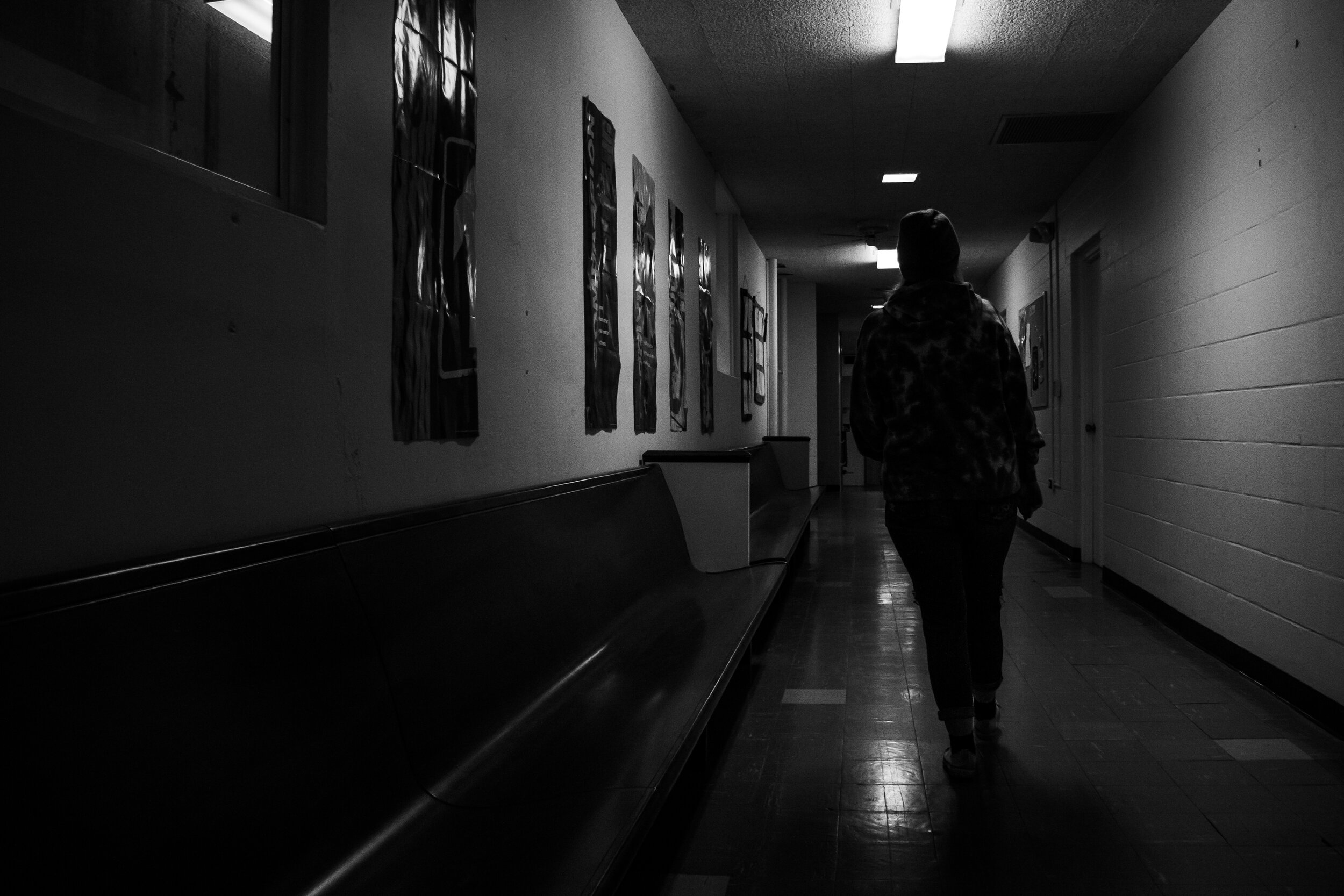Micah Kusky, 21, watches the birds flit through the trees outside of the Isabella County Restoration House, a rotating homeless shelter in Mt. Pleasant, MI, Friday, April 16.
Micah, left, and Joseph, her boyfriend, right, share a moment on what is occasionally their bed in the middle of ICRH, Sunday, March 28. They often sleep on cots on the floor at night and are required to wear masks the whole time that they are in the shelter.
Micah holds up her ultrasound photos while talking to Joseph, Sunday, April 18, outside of ICRH. Micah is around 4 months pregnant, and found out on her first day in the shelter back in December.
A single quarantine room in the back of ICRH, Friday, March 26. Upon first arriving at ICRH, Micah, having morning sickness, had to spend two weeks on this cot due to COVID protocol.
Micah, left, and Joseph, right, eat lunch together at a table separated into quarters by plexiglass, Sunday, April 18 in ICRH. The shelter, which had to fully equip itself for guests staying 24/7 when in the past they would stay at churches, had to put up plexiglass at tables and to separate the guests from the kitchen, as well as plastic between all of their computer stations.
A set of children’s blocks which, when fully put together, would tell The Lord’s Prayer, but in this instance just a few lines of broken poetry, Wednesday, March 31.
Micah does homework for her cosmetology classes, which she takes four days a week at MJ Murphy Beauty College just a block away from ICRH, Wednesday, March 31, at the First Presbyterian Church in Mt. Pleasant, MI. Where during a regular year, different churches would rotate care for ICRH’s guests, this year only a few would open up in time for ICRH’s season.
Micah cleans out her locker at ICRH, emptying it of a large stack of books, each of which she has read more than once, clothes, and more, Sunday, April 18.
Micah smokes her watermelon vape on a “smoke break” outside of ICRH, Friday, April 16. The smoke breaks would occur once every few hours, and would be the only real time that ICRH guests would be allowed outside barring approval from the director.
Micah and Joseph load their car with their belongings on the final day of ICRH’s operation, Sunday, April 18. They were able to get put up in a hotel room by an organization while they get on their feet.
Micah walks down the hall towards the dining room in the basement of the First Presbyterian Church in Mt. Pleasant, MI, Wednesday, March 31.
A Home For Baby
Her very first day at the Isabella County Restoration House rotating homeless shelter she had just found out she was pregnant. “I was a mess when I first came in, crying nonstop,” Micah Kusky, 21, said. “M. (One of the other homeless at the shelter) kept trying to make me look on the bright side.”
“I just kept saying, ya know, you’re still breathing,” said M. “Tomorrow is a new day. Keep your head up.”
Her boyfriend, also a resident of the shelter, is the father of her child. Joseph, 31, is a multi-instrument musician, the gravelly tones of rock guitar and blues-rock vocals to Micah’s soft melody, both literally and figuratively.
“He has a really deep, rugged voice and I’m more, hmm, angelic,” Micah said, smiling from her eyes, behind her mask which she has to wear at all times in the shelter.
“It makes make-out sessions a bit more difficult, being that there’s no privacy and two sheets of cloth always between us,” said Joseph.
The guests, as they are called, at ICRH are usually found in the main room where they have all of their needs taken care of by staff members and volunteers. Computers line one wall, separated by heavy sheets of plastic per COVID regulations.
The tables for eating are each divided into four sections, separated by slabs of plexiglass held in place by foam pool noodles in a makeshift set of barriers.
These changes to the shelter became necessary as COVID shut down the operation of all of the local churches, where the guests would stay throughout the weeks before transferring to a new church, and on and on.
But this year, with homelessness on the rise, about 1% since 2019 (U.S. Department of Housing and Urban Development), and that number likely continuing to climb for the duration of the pandemic, ICRH had to alter how they operate; instead of sending their guests to churches to stay, ICRH opened its own doors and made their base of operations a 24/7 stay-in shelter, fitted with showers, laundry, kitchen and even a quarantine room.
This room, lined with several cots wholly surrounded by thick medical plastic from floor to ceiling, is where Micah had to rest her head when her morning sickness kicked in until her COVID test came back negative.
“That was hell,” Micah said. “It was just… not an enjoyable experience being cooped up like that.”
Though COVID presented several unwelcome obstacles to finding hope in an already low time for her, Micah says she believes in what will come of the future: “You just have to have faith. And you have to keep your head up and keep moving forward.”
Micah and Joseph plan to name their girl Zion.












